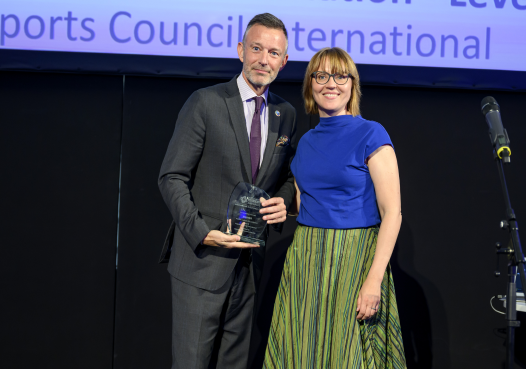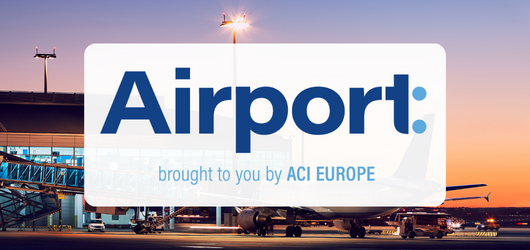Global airport carbon management programme recognised as the best sustainability initiative of the year at Association World Congress
 11 June 2024
11 June 2024
Graz, 11 June 2024: Airport Carbon Accreditation yesterday won the Sustainable Advocate Award 2024 as part of the prestigious International & European Association Success Awards, which recognise the important role trade associations play in leading and supporting their sector and profession with their initiatives.
Specifically aimed at recognising a new sustainability initiative driving consistently improved sustainability results in a particular sector, the Best Sustainability Initiative Award was bestowed upon the global airport carbon management programme in recognition of its new topmost accreditation Level 5 which was launched last December at the 28th United Nations Climate Change conference (COP28) in Dubai, UAE.
Airport Carbon Accreditation’s Level 5 certifies airports for achieving and maintaining a net zero carbon balance for CO2 emissions under their control (Scope 11 and 22) and for extending mapping, influencing and reporting requirements for all other emissions (Scope 33).
Receiving the trophy at the Awards Ceremony during the Association World Congress in Graz, Austria, Olivier Jankovec, ACI EUROPE Director General, said: “We are thrilled to have our efforts to guide and support airports in their decarbonisation journey recognised by this important award. Airport Carbon Accreditation has over the past 15 years become the global standard for airport carbon management, and Level 5 truly represents and enables a step-change in airport climate action as it provides the blueprint for net zero carbon balance achievement and for addressing scope 3 emissions. Rolling out Level 5 only confirmed the determination and readiness of the airport industry to deliver on its ambitious climate commitments and contribute to the decarbonisation of aviation – fully aligning with the goals outlined in the Paris Agreement.”
To date, 14 airports have fulfilled the stringent requirements of Level 5, notably reducing emissions under their control by 90%, removing the remainder from the atmosphere through negative emission technologies, and committing to reach net zero in Scope 3 by 2050 or sooner: Amsterdam Airport Schiphol, Eindhoven Airport, Rotterdam-The Hague Airport, Beja Airport, Madeira Airport, Ponta Delgada Airport, Christchurch Airport, Göteborg Landvetter Airport, Malmö Airport, Toulon-Hyères Airport and the Lapland Airports Group: Ivalo, Kittilä, Kuusamo, and Rovaniemi.
1 Emissions under the direct control of an airport.
2 Emissions from purchased energy.
3 Scope 3 emissions are the result of activities from assets not owned or controlled by the airport, but that the airport indirectly influences in its value chain. An airport's value chain consists of both its upstream and downstream activities.


